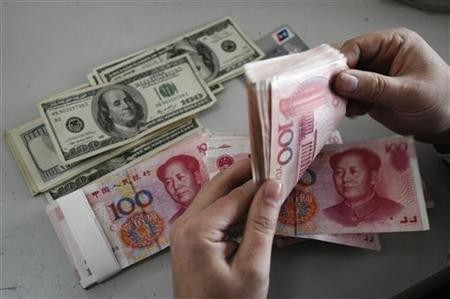UK Exporters Losing Ground in China by Not Using Renminbi Currency

Trading in Renminbi (RMB) will be vital to the UK exporters' success in China, but just 14% of those doing business in the country use the local currency.
This is well below the European leaders France (26%) and Germany (23%) and reflective of the warning shot cast by China's ambassador to Britain last month, saying that the UK has fallen behind its rivals in terms of Chinese trade.
A survey by HSBC, launched in London today, found that while 86% of those British companies trading in China surveyed expect their business to grow in the next year, just 44% believe that RMB gives them a competitive advantage in the country.
This is despite the fact that two-thirds of companies in mainland China and Hong Kong are willing to offer discount to those overseas firms settling trade in local currency.
The findings are surprising given the recent push the UK government has given the UK's RMB capability. During Chinese premier Li Keqiang's recent European visit, the Bank of England and Bank of China reached an agreement that would allow China Construction Bank to become the first Chinese bank to settle RMB payments overseas in London.
Li said at the time that he expected London to eventually outgrow mainland China in RMB clearing terms, with UK chancellor George Osborne saying: "I believe the emergence of China's currency as one of the world's leading currencies will be the next huge change. Put bluntly, I want the City to facilitate that change and be central to it."
Yet, the message appears not to be getting through to the UK export community, with question marks hanging over the amount of knowledge in the market around RMB usage.
Speaking at the launch of the survey, the new director of financial services for China at UK Trade and Investment (UKTI) Sherry Madera seemed optimistic that this hurdle could be overcome.
She said that London becoming a "centre of excellence" for RMB would feed through to exporters making headway in the currency, using the "reservoirs" of RMB that would come with being a hub for the currency's trade.
HSBC is forecasting the RMB to be a fully convertible currency by 2017 – meaning that forex traders will be able to buy, sell, lend and borrow in the currency offshore.
It's all part of the Chinese government's plans to gradually liberalise and internationalise the currency. One-third of China's international trade will be settled in RMB by 2015. In order for this figure to grow further, it will require full convertibility.
The bank's head of RMB business development for EMEA David Pavitt said that, in the near future, he expects that traders will be able to convert sterling to RMB, which will lead to a reduction in costs for UK businesses using the currency, since currently it needs to be converted into dollars, then into sterling (and vice versa), with the currency holder incurring a fee at every step.
The currency's use offshore has been growing in recent years, but much of this growth has been found in the Chinese bond (dim sum) market. In 2013, the dim sum market was worth a total RMB375 (£35bn, $60bn, €44bn). In 2014 to date, the market has been worth RMB366bn, with HSBC forecasting this to expand to RMB520bn by the end of the year.
The UK's ambition of being a clearing hub for Chinese currency could bring a raft of economic benefits. Chinese state-owned companies have already invested heavily in companies, such as Weetabix and Thames Water. A vibrant RMB trading hub would facilitate further growth in overseas direct investment, despite Beijing's efforts to steer the economy towards a more consumption-based model.
Analysts warn, however, that people outside of China must be patient about the rate in which policymakers in Beijing will adopt change.
"Our message is don't get too excited. China is under no economic pressure to liberalise, it is a net saver rather than a net borrower. It still has enough savings to fund investment," Qinwei Wang, China economist at Capital Economics told IBTimes UK.
© Copyright IBTimes 2025. All rights reserved.






















